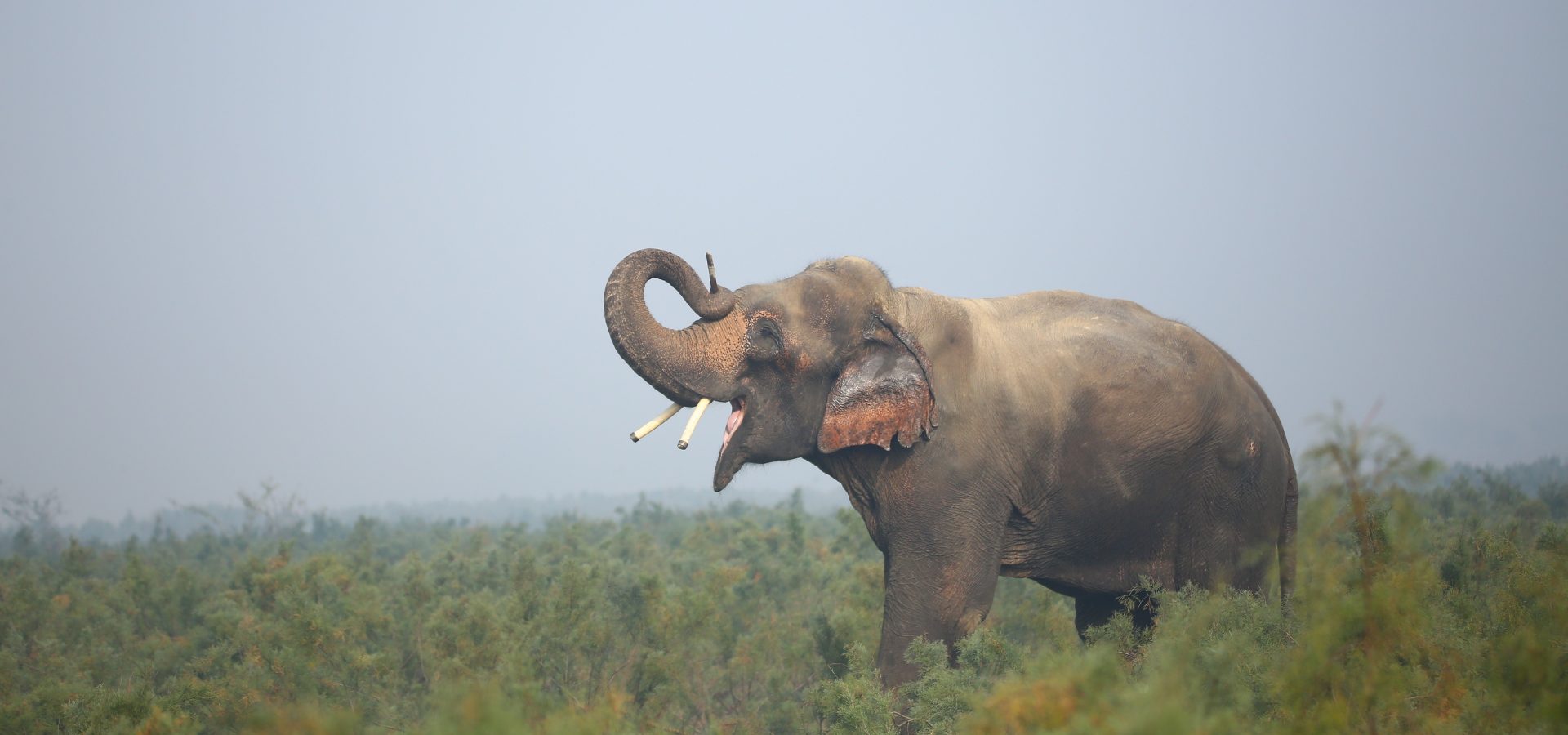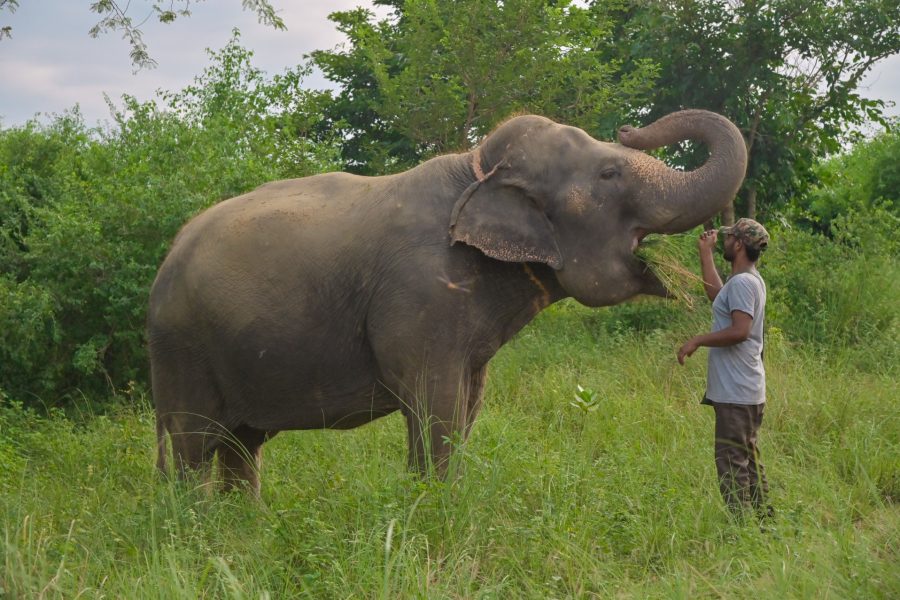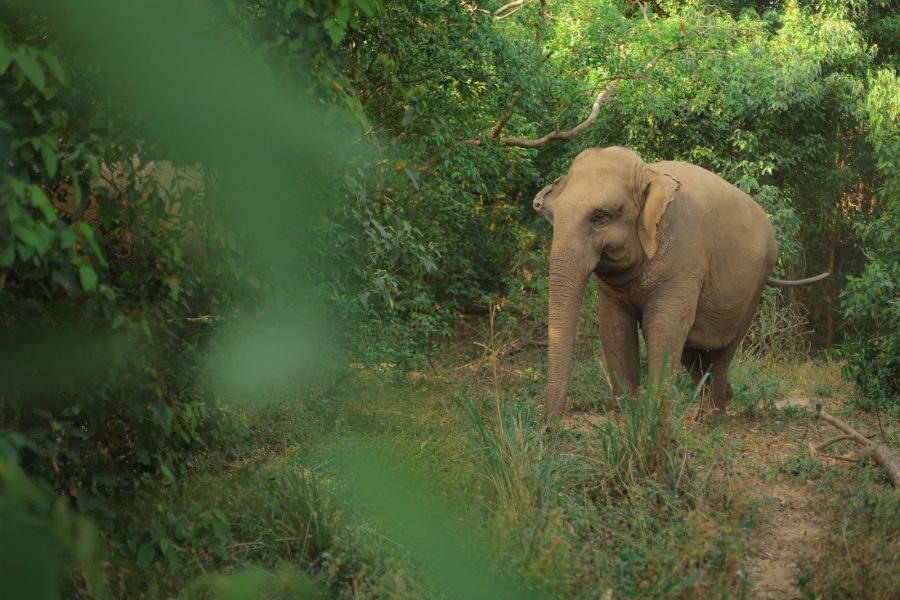In life, change is the only constant, and the key to navigating it lies in our ability to adapt to them. Caregivers at our centres embody this very spirit during every changing season of the year! By trying new and effective measures, they ensure the safety and well-being of our rescued animals. When it comes to bull elephants, significant factors need to be kept in mind to help them, as they experience changes differently from their female counterparts. While the external change of seasons affect their regular routine, male elephants also undergo a natural variation internally that temporarily alters their conduct. The latter is a biological phenomenon known as musth, which requires sensitive understanding by caregivers. Among the bulls under our care is 53-year-old Jai, who is currently undergoing a period of partial musth. His diligent caregiver makes sure to keep track of his needs and tend to each of his requirements.
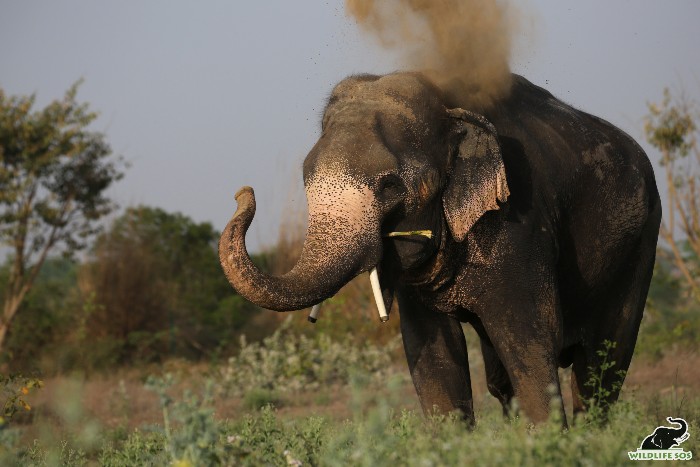
Jai had suffered a harsh lifetime as a begging elephant, and under captivity, was abused, kept malnourished and confined with spiked chains. He was rescued in 2020 after he collapsed during a procession in Rajasthan due to exhaustion and ill health. He was found with worn out foot pads, damaged from decades of walking on hot tarmac roads, and numerous wounds and bruises on his massive frame. After nearly three years of a challenging legal custody battle, Jai finally found freedom recently, and resides within the serene fields of the Wildlife SOS Elephant Hospital Campus.
The love and constant care from his team of veterinarians and his caregiver contributed to the gradual healing of Jai’s weary body and mind. Although certain conditions, like arthritis, lameness, and blindness in his left eye, are irreparable, Jai has gradually become more robust. His good health was reflected significantly when he regained regularity in his musth.
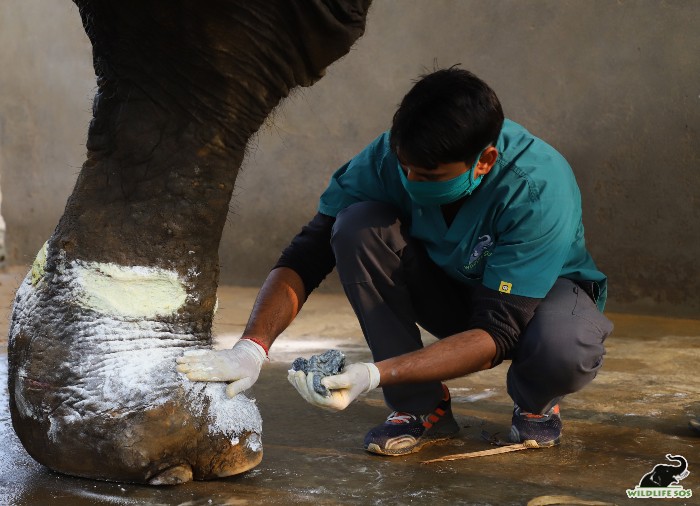
Musth is linked to a surge in testosterone levels in bull elephants. It typically lasts for 2 to 3 months, and signifies that an elephant is healthy. All through his life as a begging elephant, Jai was deprived of food and underwent constant stress, which reduced the frequency and duration of musth. The occurrence of musth has been known to push several elephant owners to intentionally underfeed their bulls so that unpredictable behaviour caused by hormonal changes can be avoided. Such neglect puts the physical and mental well-being of male elephants at risk. At EHC, Jai is left undisturbed in his spacious enclosure during his musth period, and to ensure safety, his caregivers minimise his interactions with people. This provides him with the necessary space and freedom to expend the high energy that he holds.
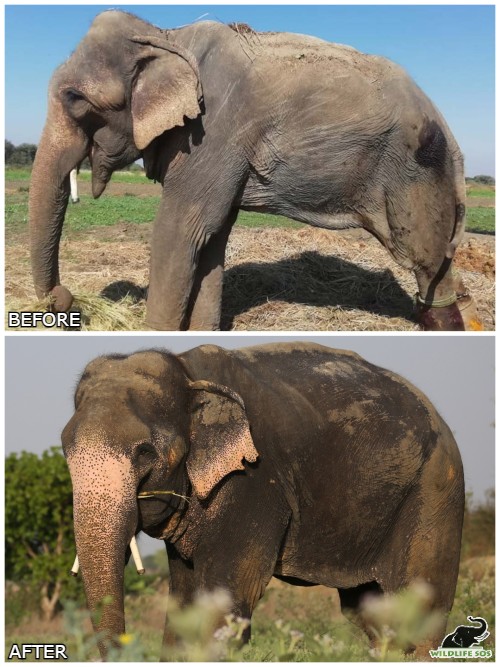
Knowing how vigorous Jai is in musth, his caregiver strategically instals numerous food-based enrichments in his enclosure so that he can engage with them. These include cage feeders and haynets that are filled with seasonal fodder. Berseem (a succulent clover) and sugarcane have made their way into the enrichments that have currently been set up for Jai. Not only do these satisfy his appetite, but the activity of extracting them also exercises his muscles effectively. Male elephants require soothing and patient gestures during musth, and Jai’s caregiver has established a strong trust with him that is truly remarkable to witness. He keeps track of Jai’s moods and preferences, which also leads him to judge if Jai is up for a target training session. On days when Jai is calm and collected despite musth, our team conducts these sessions with positive reinforcements, treating him to fresh seasonal fruits and vegetables like bananas, watermelons, papaya, carrots, cauliflowers, and beetroots. This approach encourages Jai to cooperate willingly.
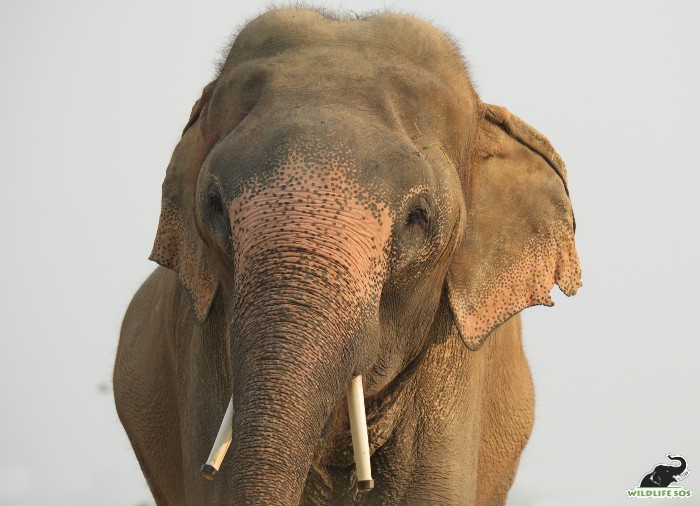
Along with musth management, our team also has a set protocol for winter management! Every year, the centre makes suitable adjustments to protect the elephants from the biting cold. This involves installing halogen and sodium lights, and adding curtains and tarpaulins in all enclosures, and blankets are provided to those elephants that are more susceptible to the cold. Meal for elephants is a cooked concoction of horse gram lentil, ragi (finger millet), brown rice, and rock salt. To instigate heat in their bodies, a masala consisting of jaggery, turmeric, ginger, and carom seeds is incorporated into their meals. However, for Jai and other bull elephants, high-energy additions like this masala is avoided during the musth period.
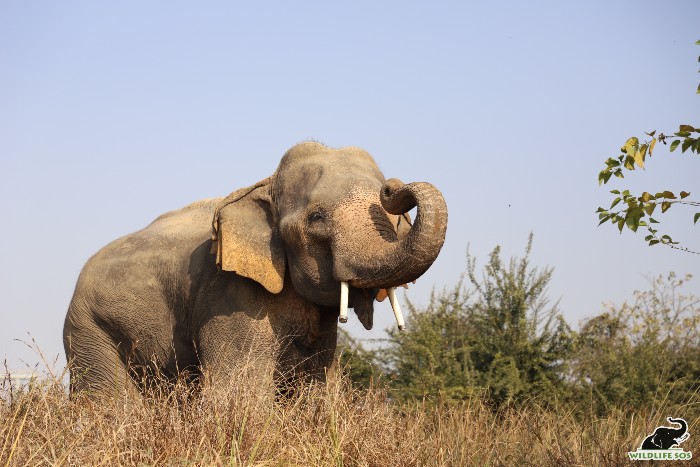
To further quell the heat in his body, the water trough in Jai’s enclosure helps immensely. He takes frequent, refreshing showers in it and guzzles ample amounts of water, despite the cold. He also takes many mud baths to cool down his body from the hormonal surge. Every aspect of Jai’s well-being is meticulously attended to by the dedicated staff at Wildlife SOS. To support our commitment towards holistic animal care, consider becoming a monthly donor.

